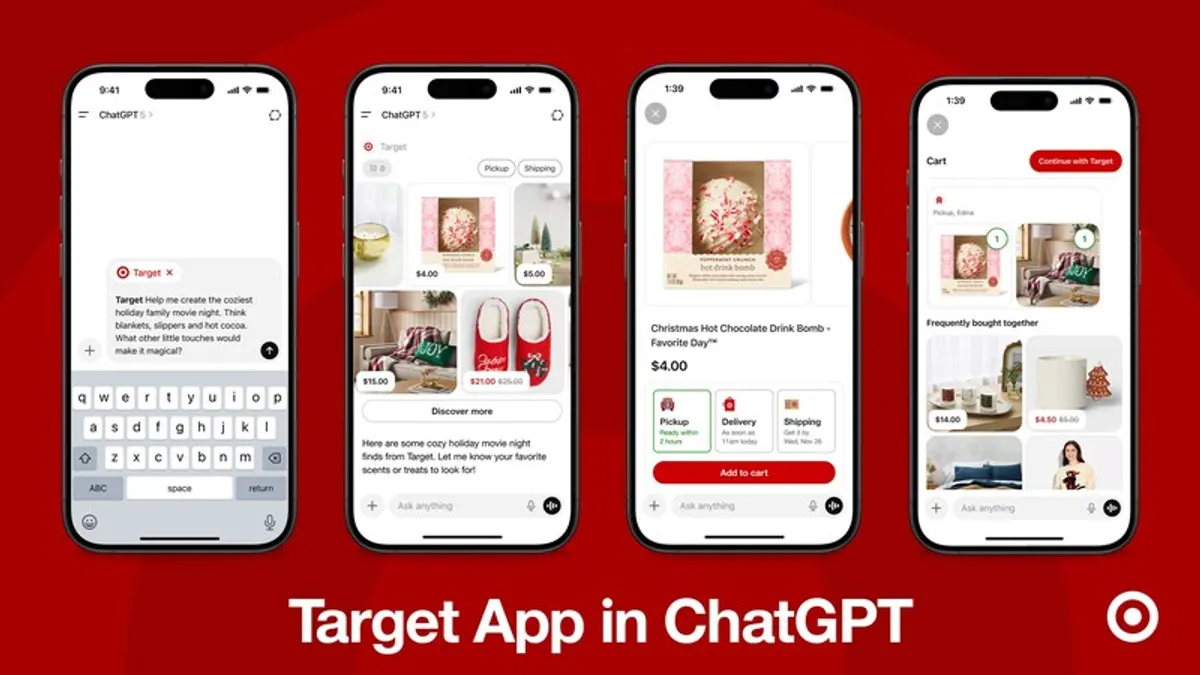When WeWork acquired content marketing services provider Conductor in March, the move signaled that the coworking space company had plans to expand its current scope and offer new tools to its business members. In the seven months since the deal, the two companies have not only grown their portfolios, but look to modernize how their clients approach marketing in both the physical and digital spaces — with or without an agency.
Prior to the announcement, WeWork was one of Conductor's largest clients, which also included CVS, Citigroup and Gap. The company is known for helping businesses target their marketing by offering a platform that analyzes what people search for on Google, YouTube, Pinterest and other search engines and, based on those insights, recommends how to optimize content.
Seventeen months into the initial partnership with Conductor, WeWork's organic traffic had grown from just 7% to 40% and overall traffic was up more than 250%, Conductor CEO Seth Besmertnik told Marketing Dive.
"The huge impact resulted in new members and increased annual revenue," Besmertnik said. "Over the course of all this, we also got to know the company better and realized we have a lot in common."
From there, a deal was born.
"Smart brands — modern brands — regardless of size or industry, are relying on high-quality content as a way to engage with and build audiences. Knowing what matters to them, how content can help educate or inspire, is paramount."

Stephanie Stahl
General manager, Content Marketing Institute
Stephanie Stahl, general manager at the Content Marketing Institute, called the acquisition "a clever and creative way to solve the physical and digital needs" for a company like WeWork, which continues to explore new services, from food and retail goods to a private school in New York.
"Smart brands — modern brands — regardless of size or industry, are relying on high-quality content as a way to engage with and build audiences. Knowing what matters to them, how content can help educate or inspire, is paramount," she said.
Measuring success
Since the acquisition, Conductor — which still operates independently — has grown aggressively now that it has a solid financial backer in WeWork versus its previous arrangement with four venture capitalists. In six months the staff has grown by 30%, opened offices in the U.K. and expanded its locations in New York and Kiev, Ukraine. As a result, the company recently reported its best-ever quarter.
Beyond its parent company, Conductor's other clients have seen a boost from its services. John Hancock Investments, for instance, has worked with the content marketing firm to better align its web presence to meet customer needs and utilized Conductor data on what people search for online to inform its marketing and sales strategy. Since partnering, John Hancock has seen higher social engagement, a 13.5% increase in open rates, a 28% traffic lift and an 11% increase in content downloads.
Conductor's search insights has been key for client Stanley Black & Decker, which uses the information to guide content development and develop advertising across B2B2C tools and storage and B2B security and industrial businesses. The power tool maker has outperformed its marketing campaign goals by 190% and boosted website traffic via SMS by 23%.
In a separate project, Conductor has helped Ski.com optimize content for vacationers by creating a ski glossary to educate people about the sport. Ski.com has since seen an 85% jump in overall traffic and a 560% increase in conversions.
Content marketing of the future
Marketing, along with employees, are often one of the biggest expenses for any company. But the marketing industry is rapidly transforming because relying on a captive audience is no longer viable.
"You can't buy attention from people anymore," Besmertnik said. With so much noise around them, consumers aren't interested in products or promotions that hold little to no value for them, he said. Without a captive audience, the value of marketing drops exponentially.
Besmertnik believes that companies need to rethink marketing as more of a way to offer value to consumers by injecting a message or content early into their buying process. While most customers are no longer loyal to specific brands, they're willing to try new products that offer a value proposition and are authentic.
This is where a company like Conductor comes in. Many companies don't have the time to manually solve every problem that crops up, so software can offer solutions that bring value to both clients and customers. Although already mainstream in the digital realm, content marketing has a way to go in the offline space, in channels like print and TV. By partnering with WeWork, Conductor now has the ability to expand its reach to those using the office spaces who may need the company's marketing tools and insight.
According to Besmertnik, businesses of the future will be unable to survive without using content as a gateway to their brand. The content marketing space is growing 16% year over year, and is forecast to be worth $412 billion by 2021, Technavio predicts.
While Stahl applauds the steps WeWork has taken to structure content marketing for its clients, she anticipates a variety of new structures popping up down the road.
"Some brands prefer to handle all content marketing with an in-house team. Others outsource to agencies. Others do a mix of both," Stahl said. "The good news is that with an emphasis on high-quality content, any structure can succeed. I applaud WeWork and Conductor for aiming to help companies thrive in the physical and digital worlds."
"To rise above the noise, brands need their content to focus on solving customer problems, they need to constantly optimize their content and they need to measure their success. Having the right tools, processes and strategies is what it takes to succeed."

Stephanie Stahl
General manager, Content Marketing Institute
Stahl agrees that there's no shortage of content today, so brands of the future will need to shift their focus to high-quality, educational or inspiring content that's wrapped up in a healthy dose of entertainment to drive shareability.
"Content marketing is a proven and sustainable practice for connecting brands with audiences in meaningful ways. But to rise above the noise, brands need their content to focus on solving customer problems, they need to constantly optimize their content, and they need to measure their success. Having the right tools, processes and strategies is what it takes to succeed," Stahl said.
"Everything comes back to content," Besmertnik added. "Content marketing should be thought about as its own sort of channel. Everything in marketing should sit on content."

















